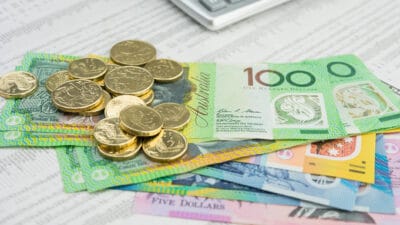If you haven't heard of Warren Buffett, you're either brand new to ASX shares investing, or you're just not doing enough research.
He's the most iconic global investing legend of our times, who has amassed a fortune worth more than US$100 billion over 80 years of investing.
Why should you care?
Because he's living proof of successful investing and, as amateur investors, we don't need to reinvent the wheel to achieve the same.
It's far easier to just copy his strategy — or that of any other great investor who inspires you, right?
Helpfully, Buffett is willing to share his investing strategies and thoughts on the health of the markets. He does media interviews and writes an annual newsletter that is very instructive for us amateur investors.
Secondly, the investment company he runs, Berkshire Hathaway Inc, is listed, which means we get a regular look at the books, providing insights as to the investment decisions Buffett is making.
Berkshire Hathaway released its Q4 and full-year results late last month.
Some analysts are seeing a warning in them for ASX shares investors.
Let's investigate.
What's the warning for ASX shares investors?
Between 30 June 2022 and the end of the year, the value of Berkshire Hathaway's cash, cash equivalents, and treasury securities (bonds) grew from US$105.4 billion to US$128.7 billion.
Translation: Buffett has just moved US$23.3 billion (A$35 billion) from the market into cash.
This has prompted a lot of conjecture among analysts and commentators about whether this is a warning to investors all over the world.
Should ASX shares investors be doing the same?
There are a few ways to interpret Buffett's move into cash.
The scariest interpretation is that Buffett sees a market correction or crash coming.
Buffett is a value investor, and market downturns provide an opportunity to do what he likes doing best. That is, buying great quality companies below their intrinsic worth. To do that, you need cash reserves.
But Buffett likes to keep a good amount of cash on hand at all times, not just when corrections are coming, so I'm not sure we can draw any firm conclusions from this AU$35 billion move into cash.
In his annual newsletter released on 25 February, Buffett says:
As for the future, Berkshire will always hold a boatload of cash and U.S. Treasury bills along with a wide array of businesses.
We will also avoid behavior that could result in any uncomfortable cash needs at inconvenient times, including financial panics and unprecedented insurance losses.
Although Buffett primarily lists in US stocks and is therefore making decisions with that in mind, we all know that what happens to US shares flows on to ASX shares. Like, overnight.
Personally, I think Berkshire Hathaway's recent increase in cash holdings simply provides a timely reminder of two important things.
Reminder no. 1 for ASX shares investors
Firstly, if you're a long-term value investor like Buffett, then you want to buy companies that are going to do well in all sorts of macroeconomic conditions because your intention is to hold them for decades.
Buffett says:
… we own publicly-traded stocks based on our expectations about their long-term business performance, not because we view them as vehicles for adroit purchases and sales.
That point is crucial: Charlie and I are not stock-pickers; we are business-pickers.
Reminder no. 2 for ASX shares investors
It's possibly not a bad idea to keep some cash on hand, so you can increase your holdings in the great companies you already own when the market goes south. That's called dollar-cost averaging.
Or, you can buy other ASX shares that are trading down simply due to sentiment. That's value buying.
Is a share market correction coming?
Tricked you with that heading. No one can answer that question, not even Buffett himself.
What we do know is that rising inflation and interest rates can be a recipe for a recession if central banks stuff up the management of these economic headwinds.
We're yet to see how this current economic situation will play out and, meantime, ASX shares are volatile.
Check this out.
Last year, interest rates in Australia started rising for the first time since 2010 in May.
The market knew it was coming, so share prices were already volatile. In the six months from 1 January to 30 June 2022, the S&P/ASX 200 Index (ASX: XJO) lost 12%.
Then investors got used to the situation and started buying ASX shares at a great discount. Cue upswing.
In the seven months from 1 July 2022 to 31 January 2023, the ASX 200 went up by 13.8%.
Now, the market is on the way back down again.
As we reported yesterday, the ASX 200 began the year at about 6,950 points. It rose to about 7,560 in early February, and just six weeks later, ASX 200 shares are back down to 7,028 points.
In other words, not far off from where they started the year.
I guess the question here is, how stressed do you want to get over these short-term share price movements?
If you're a long-term investor like Buffett, and you own great quality businesses, then you probably shouldn't be too perturbed by recent fluctuations in the value of your ASX shares.
That's a comforting message for uncomfortable economic times.
We'll get some more investing insights from Buffett at Berkshire's annual general meeting on 6 May.









